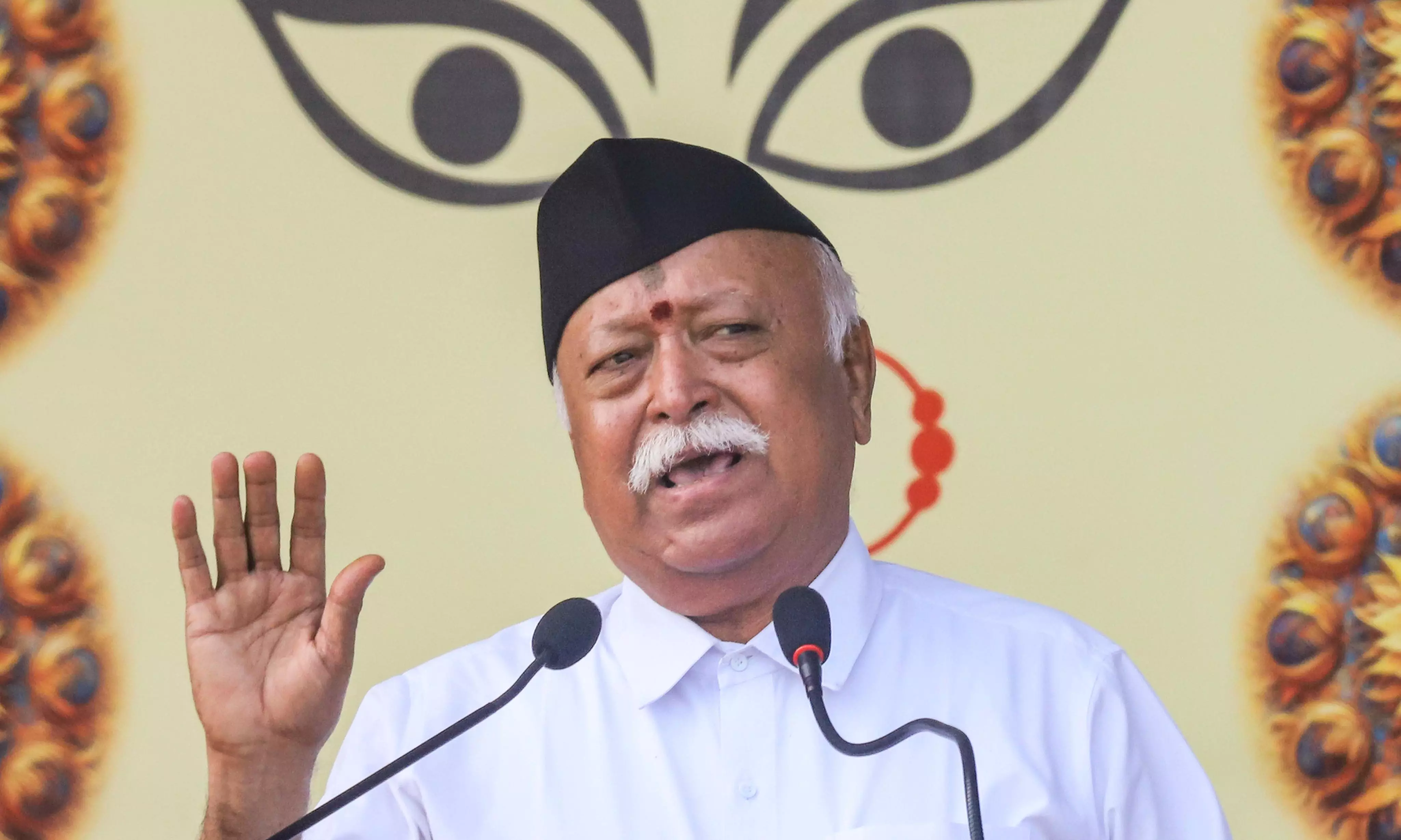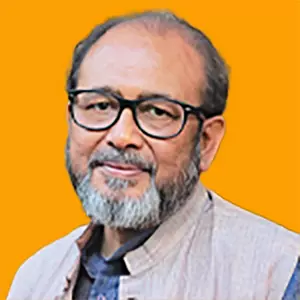
- Home
- India
- World
- Premium
- THE FEDERAL SPECIAL
- Analysis
- States
- Perspective
- Videos
- Sports
- Education
- Entertainment
- Elections
- Features
- Health
- Business
- Series
- In memoriam: Sheikh Mujibur Rahman
- Bishnoi's Men
- NEET TANGLE
- Economy Series
- Earth Day
- Kashmir’s Frozen Turbulence
- India@75
- The legend of Ramjanmabhoomi
- Liberalisation@30
- How to tame a dragon
- Celebrating biodiversity
- Farm Matters
- 50 days of solitude
- Bringing Migrants Home
- Budget 2020
- Jharkhand Votes
- The Federal Investigates
- The Federal Impact
- Vanishing Sand
- Gandhi @ 150
- Andhra Today
- Field report
- Operation Gulmarg
- Pandemic @1 Mn in India
- The Federal Year-End
- The Zero Year
- Science
- Brand studio
- Newsletter
- Elections 2024
- Events
- Home
- IndiaIndia
- World
- Analysis
- StatesStates
- PerspectivePerspective
- VideosVideos
- Sports
- Education
- Entertainment
- ElectionsElections
- Features
- Health
- BusinessBusiness
- Premium
- Loading...
Premium - Events

On the one hand, he urged people to abide by the Constitution; on the other, he played the standard drums of victimhood, asking Hindus to 'unite against stone-pelting'
It is immensely paradoxical for Rashtriya Swayamsevak Sangh (RSS) chief Mohan Bhagwat to exhort people to abide by the Constitution and stay within the boundaries of the rule of law.
That the RSS Sarsanghchalak issued this diktat while delivering his Vijayadashami speech in Nagpur is ironic because the organisation had for long dissed the Constitution, after its adoption by the Constituent Assembly in November 1949.
The organisation also did not for long – till January 26, 2002 – voluntarily hoist the national flag at any of its offices on days commemorated by citizens across the country, by educational and other institutions, and even by residents’ associations.
Get organised
Even otherwise, there were the clarion calls in Bhagwat’s speech that are typical to the Sangh Parivar. For instance, that attacks on some Hindu communities in Bangladesh were a “lesson that being unorganised and weak is like inviting atrocities by the wicked”.
Also read: Sinister conspiracies are testing India's resolve, says RSS chief in Dussehra speech
The RSS chief treaded further into hazardous territory by asserting that the Hindu community within India should organise itself to protect against “stone-pelting” on religious processions. Such explicitly confrontational elicitations make shoutouts to stay within the constitutional framework not so earnest.
Communal conflicts are not a new facet of Indian society and politics and we are nowhere near seeing the end of this endemic socio-political disease.
Records of communal clashes date back to more than a century and a half, and provide graphic details of provocation and retaliatory action. The only difference being, perpetrators and retaliators in one episode, interchange their roles in another violent act.
Normalising weapons
Importantly, the Sarsanghchalak’s address was delivered after he performed the ritualistic shastra puja, a ceremony that ‘normalises’ weapons. In the absence of clarification from Bhagwat, it remains open to interpretation if his call to Hindus to get sangathit, or organised, should have a violent element or not.
Even otherwise, appreciating Bangladeshi Hindus for their collective protest is fraught with enormous risk because, after this, the Sangh Parivar, and the nation too, will lose their moral leverage to oppose similar mobilisation and action by India’s religious minorities, especially Muslims and Christians, the two most commonly targeted sections along with Dalits.
Also watch: Watch | Bhagwat’s Dussehra speech decoded | ‘RSS, Modi on same page’
After having spoken on behalf of Hindus in Bangladesh, it would be inconsistent for the Sangh Parivar and even the government to oppose statements made by political forces in other nations, even governments there, in the wake of minorities being targeted in India.
Frequent utterances
Traditionally, the Sarsanghchalak’s address on the morning of Vijayadashami has been directed inward — his message meant to act like an ideological and programmatic guide for the cadre over the year.
But with time, as the expanse of the organisation’s influence grew, it began being of interest to people outside the Sangh fold, too. No predecessor of Bhagwat spoke as frequently as he has chosen to do over the 15 years he has been at the organisation’s helm.
Consequently, while every word was previously fervently clutched on to, because few knew when an RSS chief would next speak so candidly in public, this has not been the case with Bhagwat.
Also read: On RSS foundation day, chief’s message to people: Follow Constitution, always
He has often repeated himself, like in his use of phrases – ‘Wokeism’ and 'Cultural Marxist” – which he used in his speech on the same occasion last year.
Moreover, in Bhagwat’s case, the frequency of his utterances is rapid, and most expect the same themes to be reiterated or some of them even being accentuated. When this does not happen, there is a risk of assessing that he has taken a U-turn.
Taking potshots
This year, the first of the two most significant national and political events till date was the consecration of the Ram temple in Ayodhya by Prime Minister Narendra Modi.
The second crucial item on the national calendar was the Lok Sabha election, in which he failed to shore up for the party a tally of seats that he ‘guaranteed’ to deliver, thereby ensuring that the BJP along with its allies crossed the 400-mark.
Since the climactic day, June 4, Bhagwat has taken potshots at personalities who, although not named, never left people perplexed about their identity. This happened repeatedly, not as a one-off, and raised expectations that whenever the Sarsanghchalak went to the podium, he would pick up from where he left his barbs.
Also read: With a spring in their feet post Haryana jackpot, BJP, RSS mend fences
Just a glance at the towering and plush new RSS office in Delhi will enable anyone to comprehend the compulsions of Bhagwat that make his take a ‘balanced’ approach on this centerpiece event. Lord Acton’s quote, “power tends to corrupt and absolute power corrupts absolutely,” has been internalised by most in the reading and writing community and hardly requires retelling.
The RSS and Bhagwat may not have been ‘corrupted’ in the manner the word is used rhetorically, but the Prime Minister has not been found wanting in sharing the benefits of being in office with the party’s ideological fountainhead.
Two-faced Janus
No one will argue that Bhagwat is indiscreet with his words. But he is somewhat like the two-faced Janus, the Roman animistic spirit of doors and archways, with a face looking inward and the other looking outward.
It can be contended that Bhagwat was in introspective mode after the general elections and tried to unravel within his mind the reasons for the BJP’s underperformance. That was when he flagged issues like who can claim to be a ‘true’ sevak and whether people could claim the capacity to radiate divine aura and also have traits of non-ordinaryness.
He may have raked up this subject because it is ingrained in everyone who stays within the RSS orbit, rarely interacting with people from other circuits, that the organisation is always the primary unit and not the individual.
The world outside
On Vijayadashami, his predecessors spoke to their own ideological community. In contrast, Bhagwat is now heard by the world outside, followers, sympathisers, and outright adversaries, as technology has made all his speeches, global as well as live, courtesy Doordarshan and several private news channels since 2014.
Bhagwat’s duality, which can also be interpreted as duplicity, was embedded in his Vijayadashami address. On the one hand he appealed to avoid “unrestrained behaviour” and ensure that “one's thoughts, words or deeds do not insult anyone's faith, revered places, great personalities, books, incarnations, saints etc.”
Also read: Why Pawan Kalyan may be the perfect conduit for RSS to gain Andhra foothold
This appeal does not identify any particular community but is a counsel for everyone who lives in a land steeped in identity politics.
But on the other hand, the RSS chief also played the ceaseless standard drums of victimhood: “Some sinister conspiracies have appeared before us... attempts to disturb and destabilise the country seem to be gaining momentum from all directions... as long as this tyrannical fundamentalist nature exists there (Bangladesh), the sword of danger will hang over the heads of all the minority communities including the Hindus..."
“Words like 'Deep State', 'Wokeism', 'Cultural Marxist' ... are the declared enemies of all cultural traditions. Complete destruction of values, traditions and whatever is considered virtuous and auspicious is a part of the modus operandi of this group. The first step of this modus operandi is to bring the mind-shaping systems and institutions of the society under one's influence...”
Disunity among Hindus
Although Hindu unity has been a constant refrain of RSS chiefs prior to Bhagwat too, it remains an unfulfilled task. Caste hostilities continue being Hinduism’s cruel facet, a fact that Bhagwat did not leave out.
He emphasised the need for "social harmony and mutual goodwill among" different social groups (read castes). The RSS chief contended that disuniform access to restricted public spaces remains a major reason for disunity, even hostility, among different castes.
He candidly admitted to the problem of prevailing inequality within Hindu society: “There should be an environment for participation of all sections of society in places of public use and worship such as temples, drinking water, crematoriums etc,” Bhagwat virtually pleaded.
But he has to go beyond reiterating these statements. In its centenary year, the RSS needs to look for reasons why pan-Hindu unity remains an unfinished agenda despite being a century-old ‘project’ of the Sangh Parivar.
Also read: RSS claims it’s a cultural, not political outfit; history says otherwise
The RSS leaders must face that unity across castes became one of the Hindu right wing’s objectives starting with VD Savarkar. He initiated temple-entry movements after his release from jail in the 1920s but was restricted to stay within the confines of Ratnagiri and not participate in anti-British politics.
Embracing Dalits
Within a year after taking charge of the RSS after MS Golwalkar’s death, Balasaheb Deoras called for breaking the barriers of caste and embracing Dalits and other lower castes.
The Sangh Parivar has learnt from experience with the Ram temple agitation that Hindu unity is easiest to forge by pointing to an imaginary ‘other’, which is what Bhagwat did every now and then. But it is his other face, which looks inward, that is problematic for Modi and others in the BJP.
The themes that Bhagwat placed on the drawing board after the election results may not have been repeated in his Vijayadashami speech, but there is no knowing whether this is the last that one has heard of this, even through the centenary year.
(The Federal seeks to present views and opinions from all sides of the spectrum. The information, ideas or opinions in the article are of the author and do not necessarily reflect the views of The Federal.)


